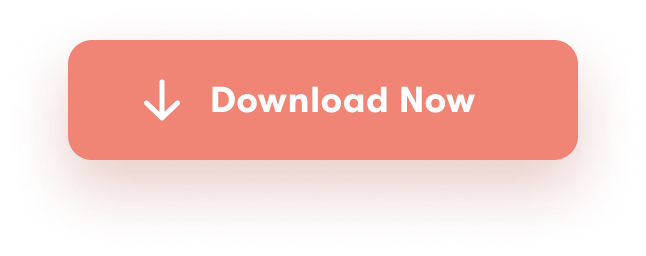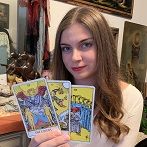 “Comparison is the thief of joy.” ~Theodore Roosevelt If you are suffering from the painful sting of envy, know that you are not alone. I was there too, for a very long time. Envy can be a crippling emotion. For me it has been connected to my depression, anxiety, and obsessive-compulsive disorder. It has been a very painful twenty years since my attachment to envy began, involving comparison, competition, judgment, harsh criticism of myself and others, in a never-ending, futile attempt to soothe my wounded ego.
“Comparison is the thief of joy.” ~Theodore Roosevelt If you are suffering from the painful sting of envy, know that you are not alone. I was there too, for a very long time. Envy can be a crippling emotion. For me it has been connected to my depression, anxiety, and obsessive-compulsive disorder. It has been a very painful twenty years since my attachment to envy began, involving comparison, competition, judgment, harsh criticism of myself and others, in a never-ending, futile attempt to soothe my wounded ego.
I was constantly, obsessively, relentlessly afraid of being inadequate and inferior—to a classmate, to a boyfriend’s ex, to a fellow singer. “She’s prettier, happier, more successful, she’s married, she’s a mother…”
As we come to learn, the comparison game never ends. Sometimes you might win, sometimes you will lose, but ultimately it is always self-destructive.
My mind would constantly compare myself to other women, and whether I fell short or came out on top, it hurt. I was deeply insecure. I hated myself. At my lowest points I was suicidal, drowning in feelings of worthlessness and shame. With some soul searching, I discovered exactly how this envy-obsession originated: It began with deep-rooted fears of inadequacy and of being abandoned and replaced, stemming from my parents’ separation when I was three years old, and then from my father’s starting a new family when I was twelve. Even though I knew I wasn’t at fault for the breakdown of my family, I subconsciously believed that it meant I somehow wasn’t good enough. I was innately unworthy. These fears morphed into deep recurring depressions, intense anxiety and panic, insomnia, and the obsessive thought patterns of envy and competition.
The mental grooves I had been digging for twenty years were very deep. They were painful, draining, and exhausting.
There were days I was afraid I would never have peace, that I would always be suffering from the mental torture of OCD. Deep down I was terrified of being abandoned and unloved. My fears manifested as an obsession with my perceived inadequacy and inferiority to other women. It has taken a lot of hard work to undo the damage these thought addictions have done to my soul and psyche.
Our subconscious mind, which normally works to help keep us safe by alerting us to threats, has a way of becoming twisted after trauma. Instead of being my own best friend, I was my harshest critic, always convincing myself that I wasn’t good enough, and that someone else was better.
Attempting to run away from my emotional turmoil created this monster of a neurosis. It was a self-harming coping mechanism to distract myself from my deep inner pain. It had become easier to obsess about whether or not someone else was “better than me” than to do the hard work of finding my own self-worth and unconditional self-love.
Envy (and the comparison and competition that went along with it) was my obsession, and social media stalking was my compulsion. If only I had spent as much time songwriting as I spent on Facebook! The suggestions I make for releasing yourself from envy are all things I personally do consistently. I now have a newfound freedom and confidence, in myself, in my place in this world, and in my connections to others. Now that I’ve done this very important inner work, nothing would make me happier than to help others spare themselves some of the self-induced misery I subjected myself to for so long. Here are a few of the things that have helped me immeasurably.
1. Stop comparing and competing.
We know how harmful it is to compare and compete, we know we shouldn’t do it, but for those of us who have been engaging in this destructive habit for years, how do we actually stop? It comes down to changing the inner narrative—how we speak to and about ourselves and others.
I began to tell myself, “I am different, unique, and special, not better or worse.” We are all on completely different paths, with unique journeys, qualities, experiences, perspectives. Logically you can’t possibly compare one person to another, but we know fear doesn’t always operate logically, so we have to retrain our minds. “I love myself. I am beautiful. She is beautiful. I am blessed. She is blessed.”
Over time I stopped wanting to judge. I stopped wanting to compare and compete. I stopped bashing other women, in what had been my attempt to make myself feel better by putting them down. It didn’t feel good that I had been so negative, mean-spirited, and critical. It hurt that my fear had morphed into hate. I was embarrassed and ashamed that I had blatantly become a mean girl.
It felt so much better to appreciate people’s positive qualities, to see their light and focus on that light.
I started saying simply “she is beautiful” about everyone I saw, whether outside on the street, or online on social media. It wasn’t long before it felt true, because it is true! Everyone is beautiful—uniquely, beautifully special in his or her own way.
I stopped critiquing people’s physical characteristics, their lives, their success, their happiness. I stopped trying to measure them against me, and vice versa.
I began seeing us all as beings of light, beloved children of the Universe, with unique, incredible gifts and talents to share with the world.
I saw other women as potential friends and allies instead of threats. I no longer feared people; instead, I welcomed them and saw us all as extensions of one another—human beings doing their best at this thing we call life, all of us divinely connected, all of us struggling with very similar, common, messy challenges.
2. Embrace sharing and learning.
Instead of trying to one-up the next person, let’s change how we view one another. How can we learn from, and be a resource for, one another? How can we offer help, guidance, and support? Instead of being in competition with one another, we could be a network of people eager to celebrate each other, share in each other’s successes, and help each other heal and grow.
I began to ask myself new questions about the people in my extended network, and the new people I met:
What can I learn from them, from their journeys, from their successes and mistakes? What can I teach them? How can I be inspired by them rather than feel threatened? How can I better be of service to others? How can I give of myself? How can I support and be supported? How can we share our strengths and build each other up?
Where once I saw division and competition, I started to see our commonalities: We had similar fears, goals, and life experiences. I realized we all have so much to give one another. I started to appreciate people more and to see all the beautiful things they were offering the world. I began to see our healing journeys as linked. I felt layers of fear begin to fall away.
3. Focus on healing.
I got down to business and worked on my overall mental, emotional, and spiritual health; my self-love, self-focus, and self-esteem. I began daily meditation and gratitude practices. I tackle the OCD with EFT (Emotional Freedom Technique, also known as tapping), and with ERP (Exposure and Response Prevention) Therapy.
I listen to meditation music designed to help balance the chakras. I repeat affirmations such as “I am at peace within myself,” as well as ancient mantras. Two of my favorites include Sa Ta Na Ma—helpful for breaking negative thought patterns and healing the mind’s chemical imbalances that lead to depression—and Om Namah Shivayah, which helps access your truest, highest self and guides your divine transformation.
I use writing, especially songwriting, to explore and to dig deep. I journal, and then I journal some more! I make lists: lists of the things I love about myself, lists of the factors contributing to my depressions, lists of ongoing challenges I’m working on. I routinely go on social media detoxes. I practice celibacy.
All of these things help me to turn the focus inward, when for years I had defaulted to focusing on other people, namely with this inadequacy complex, but also with dating and unhealthy relationships.
The more I focused on myself and my happiness, the easier it became. I rediscovered Aisling in the simplicity of comfort and candlelight, in the wind in the trees, in cooking, in music. It was liberating to love myself in a real way, and to finally feel worthy.
We live in a culture that normalizes and encourages competition. We tear each other down, we judge, we are downright mean. We allow our traumas, wounds, and fears, not to mention our cultural conditioning, to make us hate ourselves, thereby hating others.
With time and concerted effort, though, I do believe we can heal our spiritual afflictions, even the very persistent, very destructive penchant for envy, self-deprecation, and sabotage.
![]() Aisling Peartree is a singer, songwriter, Song Healing guide, and Columbia University alumna. Twenty years of songwriting-as-therapy were her inspiration for Song Healing, guidance workshops to tap into the healing power of writing. With the Freedom Movement, she and her sister Nikomo Peartree offer peace circles and concerts, guided meditations, creative arts therapy, peer counseling, educational consulting, and more. This post was republished with permission from tinybuddha.com. You can find the original post here
Aisling Peartree is a singer, songwriter, Song Healing guide, and Columbia University alumna. Twenty years of songwriting-as-therapy were her inspiration for Song Healing, guidance workshops to tap into the healing power of writing. With the Freedom Movement, she and her sister Nikomo Peartree offer peace circles and concerts, guided meditations, creative arts therapy, peer counseling, educational consulting, and more. This post was republished with permission from tinybuddha.com. You can find the original post here





